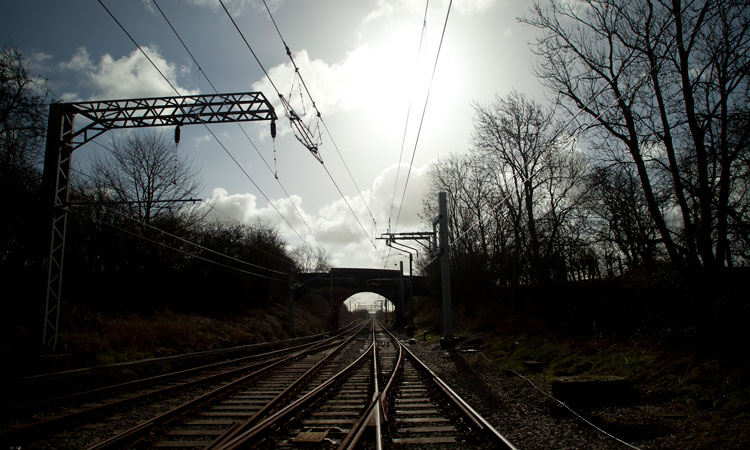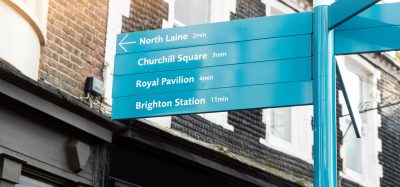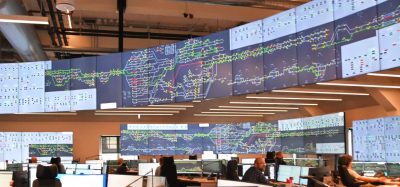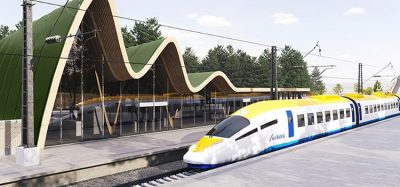Research focuses on cost-efficient electrification of UK rail network
Posted: 19 November 2020 | Global Railway Review | No comments yet
Demonstrating cost-efficient electrification has been a key component of moving away from the more traditional pattern of boom-and-bust infrastructure building.


Melton Mowbray test track
Engineers from Sheffield University, supported by Furrer+Frey and Network Rail, have conducted extensive research with an aim to improve the reliability of both current and future electrification schemes.
After four years, two PhDs have been completed, both focusing on different areas of cost-efficient electrification and improved reliability. New electrification is seen as an essential step to decarbonise rail as part of the UK government’s Net Zero 2050 decarbonisation targets.
The PhDs, undertaken by Sam Hayes and Özgün Sunar from Sheffield University’s Department of Mechanical Engineering, were both supported by Furrer+Frey and Network Rail and had a special focus on the cost-efficient electrification of the UK’s rail network.
The first PhD, undertaken by Sam Hayes and supported by Professor David Fletcher and Katherine Chan of Furrer+Frey, examined the effects of wind, the train speed and the gradient, with the aim to avoid the need for extensive bridge reconstructions in future new electrification projects.
The performance of the wires was recorded using both large-scale wind tunnels and computational fluid dynamics to create a digital twin of the wiring geometry. The digital twin was then validated with real-world testing at Network Rail’s test track at the Melton Rail Innovation & Development Centre. The PhD study looked at the maintenance impact of steeper gradients, ultimately with the aim to determine if fewer bridge reconstructions would be required.
The work is part of a package of works that the industry is undertaking to reduce the need for bridge reconstruction in future electrification schemes. Bridge reconstruction has been a key driver behind the increasing electrification costs, and hence reducing the need for these reconstructions is key to reducing the costs, as highlighted in the Rail Industry Association’s (RIA) Electrification Cost Challenge. These are among a number of industry projects designed to reduce the need for reconstructions, and it is hoped that the results of this PhD will further reduce the need for these reconstructions.
“Furrer+Frey’s expertise has ensured that the research stayed focused on industry needs, ensuring that the academic input of our PhD students will have a real impact on the industry,” commented Professor David Fletcher, head of the research group at Sheffield.
The second PhD was undertaken by Özgün Sunar, supported by Professor David Fletcher and under the industrial supervision of Chris Bryan of HS2. The focus of this PhD was to improve the reliability of overhead line electrification equipment, particularly when short-circuits and arching occurs. The research used both modelling and mechanical/electrical testing to establish intervention points and to better understand when maintenance is needed prior to service-interrupting failures occurring. The research also trialled innovative new conductor materials. The ultimate aim of the project was to improve the electrification performance and to enhance passenger journeys and the travel experience by preventing failures.
“Research and study are among the keys to making electrification cost efficient,” stated Director of Furrer+Frey, Noel Dolphin. “However, as the Railway Industry Association’s Electrification Cost Challenge Report has shown, we need to remember that implementing a rolling programme of electrification would have the biggest impact on costs. By reducing costs and improving reliability, we can make the business case for this much stronger.”
As members of the UK Rail Research and Innovation Network (UKRRIN), the research shows how collaboration between universities and industry can play a vital role in bringing innovation to Britain’s railways. The work shows how engineering research can help underpin electrification of the UK’s rail network, alongside improving reliability for passengers and driving innovation in the industry.
The PhDs were jointly funded by the University of Sheffield, Furrer+Frey and European Union (EU) funding under a programme to improve research with industry to improve the railway sector.
Related topics
Digital Twins, Electrification & Cabling, Funding & Finance, Infrastructure Developments, Sustainability/Decarbonisation
Related organisations
Furrer+Frey, HS2 Ltd (High Speed Two), Network Rail, UK Rail Research and Innovation Network (UKRRIN), University of Sheffield
Related regions
Related people
Chris Bryan, David Fletcher, Katherine Chan, Noel Dolphin, Özgün Sunar








